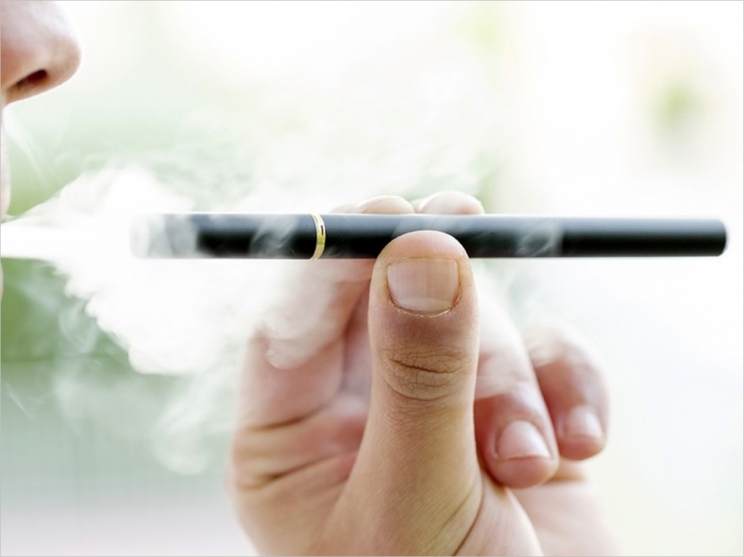
E-cigarette users develop some of the same cancer-related molecular changes in their oral tissue as cigarette smokers, according to the University of Southern California (USC), adding to the growing concern that e-cigarettes aren’t a harmless alternative to smoking. And among adolescents, USC notes, vaping now surpasses smoking, and e-cigarette use leads to nicotine addiction and future smoking.
“The existing data show that e-cig vapor is not merely water vapor, as some people believe,” said Ahmad Besaratinia, PhD, an associate professor at the Keck School of Medicine of USC and the study’s senior author. “Although the concentrations of most carcinogenic compounds in e-cig products are much lower than those in cigarette smoke, there is no safe level of exposure to carcinogens.”
The molecular changes seen in the study aren’t cancer or even pre-cancer, Besaratinia emphasized, but rather an early warning of a process that could potentially lead to cancer if unchecked.
The researchers looked at gene expression in oral cells collected from 42 e-cigarette users, 24 cigarette smokers, and 27 people who didn’t smoke or vape. Gene expression is the process by which instructions in DNA are converted into a functional product such as protein. Certain alterations in gene expression can lead to cancer.
The study focused on oral epithelial cells because more than 90% of smoking-related cancers originate in epithelial tissue, and oral cancer is associated with tobacco use. Both smokers and vapers showed abnormal expression, or reregulation, in a large number of genes linked to cancer development.
Also, 26% of the deregulated genes in e-cigarette users were identical to those found in smokers. Some deregulated genes found in e-cigarette users but not in smokers are nevertheless implicated in lung cancer, esophageal cancer, bladder cancer, ovarian cancer, and leukemia.
The researchers plan to replicate their findings in a larger group of subjects and explore the mechanisms that cause gene deregulation. They also are launching another experiment in which smokers switch to e-cigarettes to see whether any changes in gene regulation occur after the switch.
“For the most part, the participants are as curious as we are to know whether these products are safe,” Besaratinia said.
The study, “Deregulation of Biologically Significant Genes and Associated Molecular Pathways in the Oral Epithelium of Electronic Cigarette Users,” was published by the International Journal of Molecular Sciences.
Related Articles
E-Cigarettes Kill Epithelial Cells, Damage Tissue, and May Cause Cancer
E-Cigarette Usage May Complicate Oral Surgery
E-Cigarette Flavors Affect Free Radical Production











